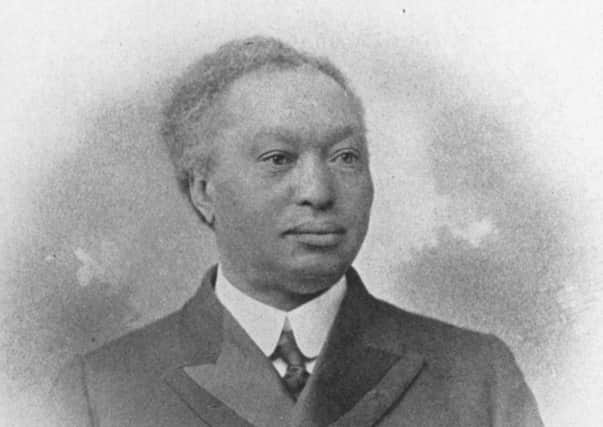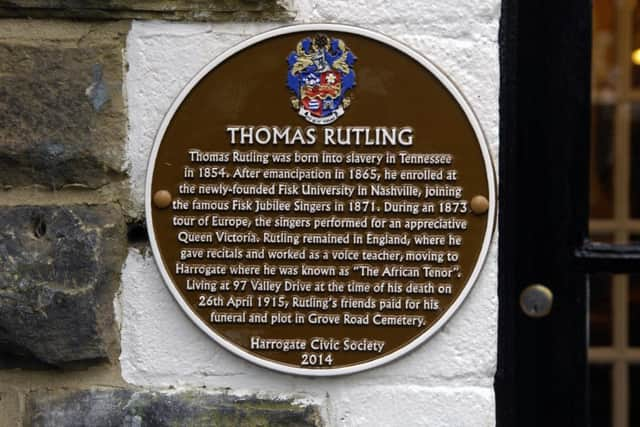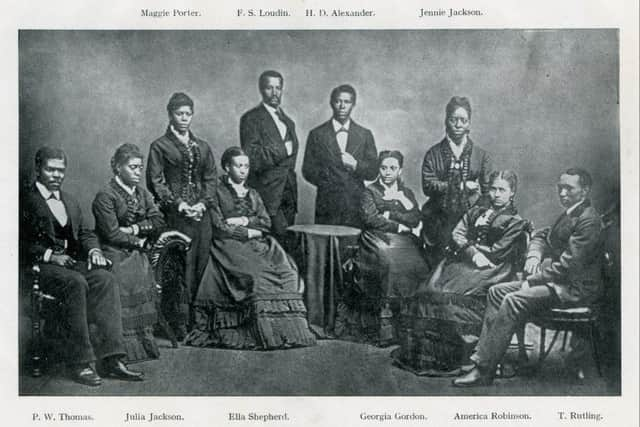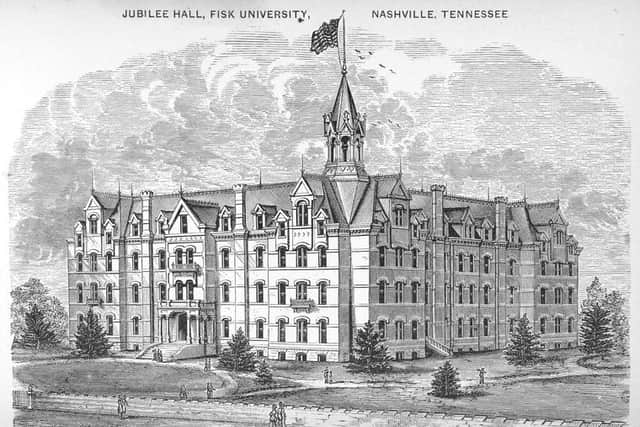Concert to celebrate live of US slave who found home in Harrogate


Thomas Rutling was born into slavery in 1854 on a plantation 20 miles from Nashville. His father was sold before he was born and when he was still an infant he was wrenched from his mother’s arms as she too was sold to another plantation.
Thomas became a house boy, serving food to his masters until 1865 when the end of the Civil War brought about the abolition of slavery and ‘freedom’.
Advertisement
Hide AdAdvertisement
Hide AdLife after slavery was one of abject poverty for Thomas and the majority of the 40,000 slaves freed in Southern States.


He, along with thousands of others, headed to Nashville to try and find work and a new life. It wasn’t long until he was recommended to the Fisk Free Colored School, now Fisk University, where tuition was free and a young Thomas waited tables for the teaching staff to earn his keep.
Thomas studied hard for five years, before he joined the Jubilee Singers, a musical group organised to tour and make money for the University.
The group’s first tour of Europe was a huge success. The group were critically acclaimed and in huge demand after Lord Shaftesbury arranged a performance for 600 specially selected guests.
Advertisement
Hide AdAdvertisement
Hide AdThe group received the Royal seal of approval in 1873 when Queen Victoria said: “We were delighted,” after hearing them perform and their popularity grew from there.


Thomas and the group travelled all over Europe, performing for Royal families and packed out theatres and netted the University £10,000, paying for the grand Jubilee Hall which still dominates the University campus today.
The Jubilee Singers were the Beatles of their day, special train services were put on to carry fans to their shows and there were reports of people being crushed in huge crowds at Leeds Crown Hall.
Performer and writer Joe Williams, who has studied Rutling’s life in depth said: “Harrogate is blessed in a way, it is almost like having the Beatles in the town, and we still don’t know why he choose Harrogate.”
Advertisement
Hide AdAdvertisement
Hide AdThomas settled in Harrogate, after spending 12 years in Europe, studying the languages of Opera; French, German and Italian.


His time in Europe remains a mystery, though researcher Audrey Dewjee believes he was driven by a motivation to prove that black people could become successful after the end of slavery. She said: “People had said if black people had the same opportunities as white people, they would do just as well if not better, and Thomas had those opportunities so it was a big responsibility.”
Arriving in Harrogate in 1891, Mr Rutling took out an advertisement in the Harrogate Advertiser, offering his skills as a language teacher and performer.
As a black man living in Harrogate he would have been in a small minority, possible one of just a few black people living in the area at that time.
Advertisement
Hide AdAdvertisement
Hide AdMs Dewjee believes he would have been able to live the life of any other gentleman around town in Harrogate, and evidence showed that he made good friends with many movers and shakers in Harrogate. He was good friends with a prominant local doctor and a bookseller.
She said: “It was by no means perfect here, but it was better than what was happening in the US at the time, there it was enshrined in the law.”
Mr Williams said: “In Europe Thomas experienced freedoms unlike he had in America, even though he was the performer, theatres in the States would have made them use a back entrance, they weren’t allowed to use the front door. In Europe they didn’t have to live as second class citizens.”
After living in Harrogate for more than two decades, Mr Rutling suffered a fatal stroke on the beach in Morecambe in 1915.
Advertisement
Hide AdAdvertisement
Hide AdLast year Harrogate’s Civic Society unveiled a plaque on his former home on Valley Drive, celebrating his life.
Now 100 years after his death the Geraldine Connor Foundation, in partnership with the Harrogate International Festival are producing a concert to celebrate his life and music.
Sweet Chariot - Thomas Rutling and the Road to Freedom will feature the celebrated tenor Ronald Samm, extracts from Rutling’s autobiography, the Celebration Gospel Choir and a pre-concert talk at the Royal Hall on July 24.
Contact the box office for tickets 01423 562 303.
Anyone with additional information on Thomas Rutling’s life is asked to email the Geraldine Connor foundation; [email protected]